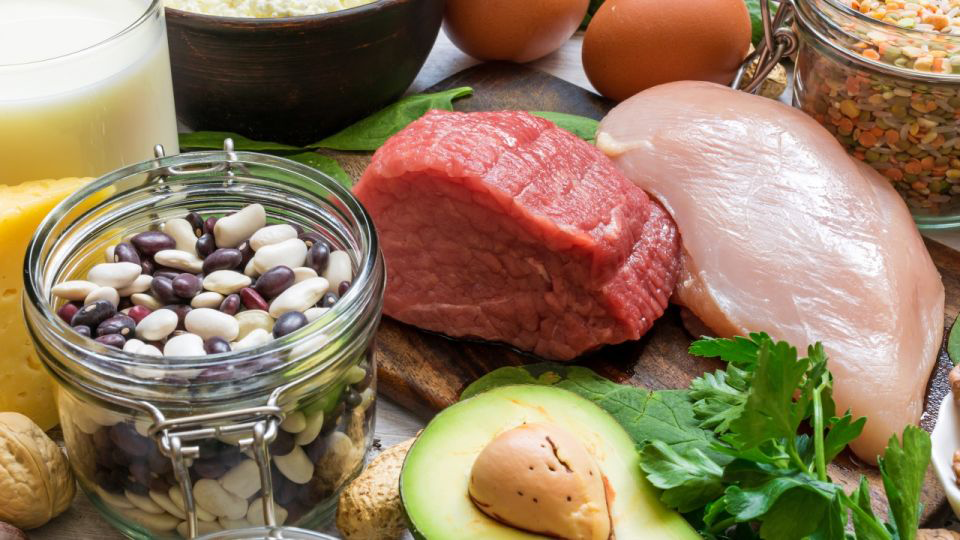
8 Best Foods for Breastfeeding Mothers
Breastfeeding is a crucial stage of childbirth. During this time, your body is still recovering the strength it lost from giving birth. At the same time, you need to keep a healthy body to supply your baby with all the essential nutrients he or she needs.
Breastfeeding mothers out there may be curious about what foods they need to include in their diet, as well as those they need to stay away from. In most ways, breastfeeding diets are similar to recommended intakes during pregnancy, so it wouldn’t take much time for you to adjust to the new diet.
Your breastfeeding diet’s primary goal is to nourish your body with enough nutrients to increase your milk supply and give your baby the proper nutrition that they need. With the many articles online that tell you what you need to eat during breastfeeding, planning your meals can get overwhelming. To help you, here is a list of the eight best foods for breastfeeding mothers.
Healthy Breastfeeding Diet
1. Fruits and Green Leafy Vegetables
Loading your plate with fruits and vegetables is a great way to increase your nutrient intake for every meal.
Instead of snacking on junk food, eat a various array of fruits, especially those that are filled with vitamins B1, B2, B6, and C, which are necessary nutrients for milk production. They are also rich in fiber that helps your body absorb vitamins and minerals and aids your digestive process. Apples, bananas, oranges, and grapes are some of the fruits that you should consume, and they also contain antioxidants that eliminate free radicals that may damage your body.
Vegetables, specifically green leafy vegetables, are also good for breastfeeding. Greens like spinach, broccoli, kale, and asparagus provide nutrients vital for breastfeeding that you cannot get from other types of food. Vegetables are excellent sources of potassium, folate, and vitamin A, all of which contribute to healthy cell functions.
Experts recommend breastfeeding mothers to eat at least three to four servings of fruits and vegetables a day. It gives you the proper balance of nutrients your body needs to gain energy and produce breast milk.
2. Lean Meat and Protein-Rich Food
Another type of food for breastfeeding is food that is rich in protein. Lean meats like chicken and fish can be hearty options for meals, though be cautious about consuming too much fish or seafood as it may affect the healing of wounds that you may still have during this time. Other protein sources include eggs, milk, yogurt, cheese, quinoa, and soy. They provide the nine essential amino acids that your body cannot produce on its own.
Including three servings of protein-rich food a day nourishes your body. Protein is also easy to incorporate for each of the three essential meals. Also, exceeding the recommended daily allowance for protein doesn’t lead to harmful effects. In fact, your body will store excess protein as body fat. Still, watch your portions and make sure your meals are well-balanced.
3. Whole Grains
Consuming the right amount of carbohydrates is essential for proper brain function and managing energy levels. Because you are breastfeeding, you may need to increase your calorie intake by consuming carbohydrates, to give you and your baby proper nutrition. Whole grains like brown rice and oatmeal are good sources of calories and carbohydrates. For comparison, five cups of broccoli have the same carbohydrate count as a half cup of brown rice. Unless you are a big fan of broccoli, whole grains are an excellent way to get enough calories.
Three servings of whole grains give you enough energy to push through the day. Including small amounts of pasta or bread makes a substantial meal. If you want a snack, you can grab an oat-filled granola bar. For mothers who love to bake, try substituting whiter flour with oat flour.
Whole grains are also known to aid the body during breast milk production.
4. Healthy Fats
Foods for breastfeeding should contain healthy amounts of fat. Walnuts and almonds are rich in essential nutrients like vitamin E, omega-3, omega-6, and antioxidants. Avocado is also known to be a good source of healthy fats. Low-mercury fish such as salmon and sardines provide omega-3.
However, consume fat in small amounts; you don’t need as much during your pregnancy. Too much fat intake may cause gas, bloating, and stomach discomfort. Also, too much omega-6 raises your blood pressure. A few avocado slices in your salad or a handful of nuts provide enough healthy fats for your body needs.

5. Calcium-Rich Food
During this period, it’s all about healthy milk production. Food for breastfeeding should be rich in calcium. Aside from milk production, calcium also supports skeletal functions for good teeth and bones. It also prevents blood clotting and muscle contraction, and helps nerve function and cell communication.
Dairy products like milk and yogurt are natural sources of calcium. Vegetables such as broccoli and bok choy are also great options. Experts recommend consuming between 1000 and 1500 milligrams of calcium a day during breastfeeding.
6. Iron-Rich Food
Iron content in your blood becomes diluted during pregnancy, which is normal, so there’s nothing to worry about. Iron assists in transporting and storing oxygen in your body. It also plays a huge role in energy production, cell respiration, and the production of white blood cells that fight bacteria.
During this time, it is essential to intake foods for breastfeeding that are rich in iron. Include at least one serving or nine milligrams of iron in your daily meal pattern. Beef, poultry, seafood, and egg yolks are good sources of iron.
7. Vitamin-Rich Food
If your diet doesn’t consist of enough vitamins, you are running the risk of decreasing your breast milk production. Food for breastfeeding that are rich in multivitamins include:
- seeds and nuts (vitamin B1, B2, B6)
- lean meats (vitamin B2, B6)
- fish and seafood (vitamin B1, B2, B6)
- eggs (Vitamin A, B2)
- root crops and leafy greens (vitamin A)
Daily consumption of vitamin-rich foods aids your body throughout breastfeeding.
8. Water
Maintaining ample water intake is crucial during breastfeeding as it affects your milk supply. Dehydration may also lead to other problems such as urinary tract infection, constipation, and fatigue. Once the body lacks water, your body draws water from your joints, muscles, digestive system, and blood, leading to further complications affecting breast milk production.
To avoid all these, drink at least eight glasses of water or 128 ounces a day.
Foods to Avoid or Manage when Breastfeeding
While there are foods you need to include in your diet, there are also some you need to stay away from. Here are some of the breastfeeding foods to avoid:
1. Alcohol
Alcohol passes through your breastmilk, albeit in lesser amounts than what you drink. It is not strictly prohibited, though it is best to limit yourself to drinking one alcoholic drink a few times throughout the week. If you are going to drink, avoid drinking right before or while nursing your baby. It takes around 2 to six hours for alcohol to clear in your system.
2. Coffee
Coffee is another breastfeeding food to avoid, though it is not prohibited. One to two cups of coffee is enough caffeine consumption for one day. Caffeine passes into your milk. Drinking too much coffee or other caffeinated drinks may lead to you and your baby feeling jittery and irritable, affecting your baby’s sleep quality and length.
3. High-Mercury Fish
Breastfeeding mothers are recommended to eat two to three servings of low-mercury fish every week. However, not all fish can be consumed by pregnant and nursing mothers. Some fish, specifically large, ocean-faring, predator-types, contain high mercury levels, which may harm your baby’s health. Fish like shark, swordfish, orange roughy, marlin, bigeye tuna, tilefish, and King mackerel are foods to avoid during breastfeeding.
4. Herbs
Natural pigments in herbs like sage, parsley, and peppermint may change the color of your breast milk and affect your milk production adversely. However, you would have to eat large portions of the said herbs to see any negative effects during breastfeeding.
